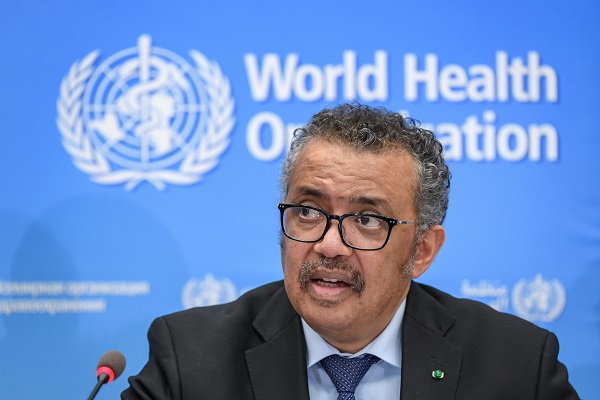
The World Health Organisation (WHO) has launched a new guideline for the pharmacological treatment of hypertension in adults, which presents the most up-to-date evidence-based recommendations on managing hypertension.
Speaking during a virtual press conference on COVID-19 yesterday, the WHO director-general, Dr. Tedros Ghebreyesus, announced the launch of the guideline, saying despite the very high-level stability of the COVID-19 in the past two months, another epidemic, hypertension had continued to kill millions of people every year.
“After increasing for nearly two months, the global number of COVID-19 cases and deaths were stable last week. But it is stable at a very high level – more than 4.5 million cases and 68 thousand deaths,” he said.
He added, “Another epidemic continues to kill millions of people every year – cardiovascular diseases are the leading cause of death globally, and hypertension is one of its main risk factors. More than 1.2 billion people live with hypertension. Today, WHO launched a new guideline for the pharmacological treatment of hypertension in adults, which presents the most up-to-date evidence-based recommendations on managing hypertension.”
He said a new study led by Imperial College London and WHO published yesterday estimates that almost half of all people with hypertension don’t know they have it, and only 1 in 5 have it under control, adding there are tools to prevent, diagnose and manage hypertension and the challenge was to make sure everyone with hypertension has access to those tools.
According to Ghebreyesus, the new guideline provides recommendations on the level of blood pressure at which it is appropriate to start medication, what type of medicine or combination of medicines to use, what level of blood pressure to target, and how often follow-up checks are needed.
“Pharmacological treatment should always be combined with healthier diets and regular physical activity; more strictly controlling tobacco products; and identifying and treating comorbidities such as diabetes and pre-existing heart disease,” he emphasized.
He commended Singapore for its concerted efforts in reducing the prevalence of cardiovascular diseases in its country through legislation, even as he reaffirmed WHO’s commitment to a safe world.
“Indeed, Singapore is a good example of a country that has taken concerted action to reduce hypertension and heart disease, with a bill that will ban the use of artificial trans-fats – a leading contributor to hypertension and heart disease – from its food supply by this year.
“WHO’s new guideline is another example of our commitment to our mission to promote health, keep the world safe and serve the vulnerable,” he added.


